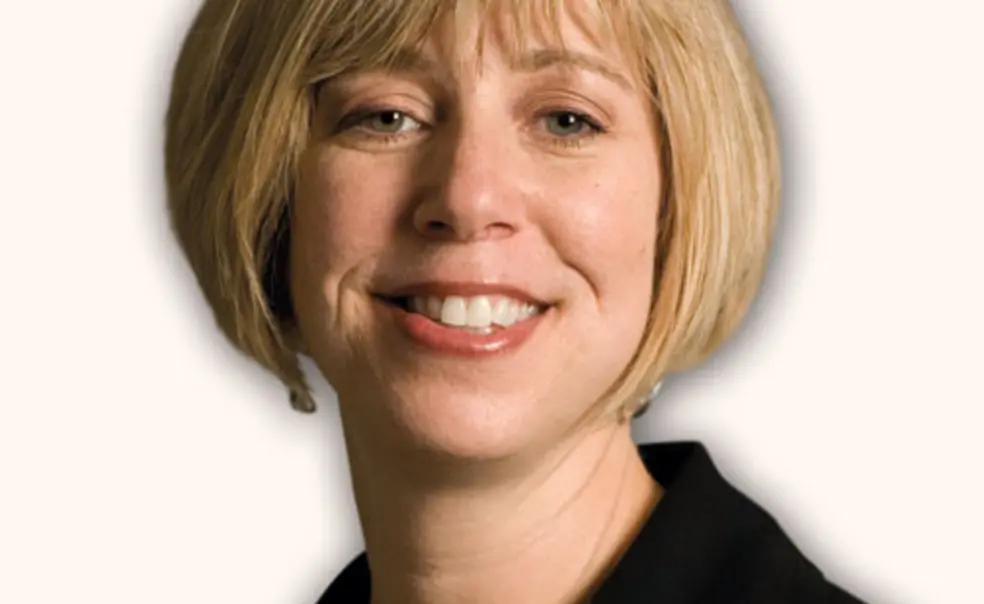A moment with ... Robin Harris, Ivy League executive director

As Robin Harris begins her second year as executive director of the Ivy League, she can look back at a number of successes, including the first postseason men’s and women’s lacrosse tournaments and the first appearance by an Ivy team in the men’s basketball Sweet 16 since 1979. Harris, who worked on issues involving collegiate sports at an Indiana law firm and for nine years at the NCAA, gave her views on the athletics landscape and the challenges ahead.
The Princeton women’s tennis team recently was censured by the NCAA because an alumnus paid part of an athlete’s educational expenses. Did the reporting and compliance systems work as they should?
They worked exactly as they should. In fact, the NCAA’s committee on infractions commended Princeton and the alumnus who provided the education expenses for immediately reporting the information when he received the notice from the compliance staff. That reporting is what prompted this whole case; it was not a case where the NCAA discovered any information on its own.
You have been interested in promoting wider TV exposure for Ivy athletics. How has that come along?
I think it has gone very well. We achieved our goal last year of televising the finals in both the men’s and women’s lacrosse tournaments. We were also able to stream the semifinals for both tournaments on the Internet on a pay-per-view basis. We believe we will be able to do all of that again in 2011. And we have entered into a two-year contract with Versus for an Ivy League football package. For the future, we are developing a plan for what our broadcast distribution is going to look like — what is on television, what is streaming, what sports.
Does the Ivy League pay for TV exposure?
Our presidents historically have said that we should not spend money on television. So either the networks have to pay us for the broadcast or we have to find corporate sponsors. For the lacrosse tournament, we partnered with Champion, the athletic apparel company, to help us fund the television broadcast. In other conferences, the schools chip in the money for the conference to be on television. Our schools have said, and rightly so, that they would rather use that money for other things.
Will Ivy League football teams be permitted to play in the Football Championship Subdivision playoffs?
That is an issue for the Ivy League presidents to decide, but it is not on the presidents’ agenda at this time.
Are there any plans for a postseason basketball tournament?
Several sports have requested postseason tournaments, but right now we have placed a moratorium on any new tournaments. In this economy, we don’t have the money to stage a tournament if it is not going to generate revenue. Our athletic directors want to evaluate the lacrosse tournament first, to see how it works, before considering postseason tournaments in any other sport.
Have recent press reports about the hidden dangers of concussions and head trauma suffered by athletes caused the Ivy League to review its policies in this area?
Our presidents have been concerned about protecting our athletes from head injuries, and in fact, they discussed it at several meetings before the issue even surfaced in the press. It is important for us to be in the forefront in following best practices and standards and following the latest research. At this point we feel that the NCAA is best positioned to review this at a national level. But we are paying close attention to what the NCAA is doing, and our medical doctors and trainers are involved in that discussion.
There has been a trend toward overspecialization in sports. Can the Ivy League do anything about it?
As a mother of two young children, I am personally concerned about this. Young athletes come under a lot of pressure at the youth level to specialize, well before they even get to college. That is a bad idea for a number of reasons, not the least of which is that it de-emphasizes high school sports. All of a sudden it becomes more important for kids to play on those special teams, the travel teams, than on their high school teams. As someone who believes that athletics is part of the overall educational experience, that troubles me. In the Ivy League, we have rules limiting the amount of practice time and number of games so that at least when young people are in college, they can have breaks from their sport. But the pressure to specialize starts so young that I am not sure how we can stop that train from moving forward.
— Interview conducted and condensed by Mark F. Bernstein ’83












No responses yet